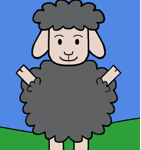Most studies are online only unless specified

Let’s learn new words in books!
Who: 4-year-old children who speak English as a primary language.
What: Our study is designed to understand how young children are learning to understand new words. During a 10-15-minute Zoom study, you will meet with one of our researchers who will read your child a book and ask them questions about the book.
How: Fill in the form below and the researcher will contact you with more information!

Let’s match some pictures!
Who: 4 to 6-year-old children who speak English as a primary language.
What: Our study is designed to understand how young children think about the “opposite” relation. During a 30-minute Zoom study, you will meet with one of our researchers who will show your child some pictures and ask them to match the ones that go together. We hope you will participate!
How: Fill in the form below and the researcher will contact you with more information!

Let’s learn new spatial words!
Who: Children ages 5 to 6 years old who speak English as a primary language.
What: Our study is designed to understand how young children are learning to understand new words. During a 10-15-minute Zoom study, you will meet with one of our researchers who will show your child a series of videos with everyday objects and ask them questions about the videos.
How: Fill in the form below and the researcher will contact you with more information!
If you are looking for more studies to do with your child, please check out ChildrenHelpingScience.com
Children Helping Science has studies from universities around the world, on many different topics, for children of multiple ages (infancy to 18 years).